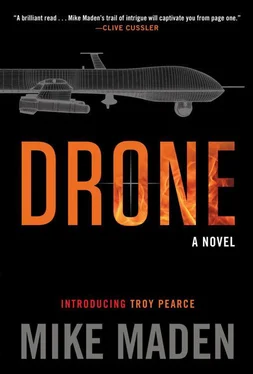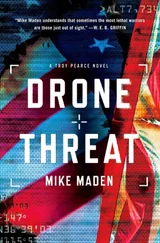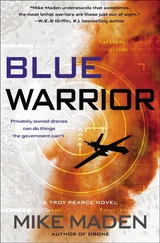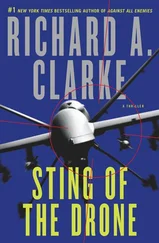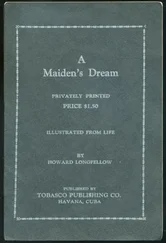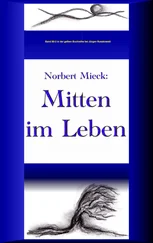“Who’s that?” Ulises asked.
César howled with laughter. “How paradoxical! A stupid tomato picker like me knows more than a college-educated fairy. Don’t either of you listen to the news?”
“Only ESPN,” Ulises said. “And hardly that.”
“So who is Ryan Martinez?” Aquiles asked.
“Ryan Martinez was a schoolteacher at that party you shot up,” César said. He wiped his thick mustache with one of his monstrous hands.
“And…?” Ulises asked, cringing, half expecting another blow.
“Ryan Martinez was the son of the president of the United States! And now she is going to unleash holy hell on us for murdering her only child.”
The boys glanced at each other, frightened and confused. “We didn’t know,” they said to each other, as if talking to themselves in a mirror.
César leaped to his feet, reaching for the chromed .45 caliber Desert Eagle in his waistband. Screaming with maniacal rage, he opened fire at the nearest statue, a goat-legged Pan with a great golden phallus thrusting up to his midsection. Pan’s marble head exploded with the first hit. The next rounds tore away the god’s massive pectorals and mashed his silver shepherd’s flute. César kept firing until he emptied the magazine. He dropped the clip and slammed a new one home, then chambered the first round.
César pointed the gun at each of his sons like an accusing finger.
“Tell me, smartasses. What should I do with the two of you now?”
The White House, Washington, D.C.
Ambassador Konstantin Britnev was ushered into the Oval Office where he was greeted by the warm smile and firm handshake of President Myers. A White House press camera flashed three times.
“I hate having my picture taken,” Myers whispered to Britnev under her breath.
Britnev nearly laughed as he widened his alluring smile. “You should see my passport photo. It’s terrible.” They held hands as several more shots were snapped.
“That will be all. Thank you,” Myers said to the photographer.
“Thank you, Madame President, Ambassador Britnev. Excuse me.” The female photographer cast a brief, leering glance at the handsome Russian as she exited through the secretary’s office door.
“Dr. Strasburg, so good to see you again.” Britnev nodded cordially as he extended his well-manicured hand. Strasburg was on the couch. He struggled to rise.
“No, please, Doctor, remain seated.” Britnev stepped closer to the couch and shook Strasburg’s veiny hand. The Russian, thirty years younger than Strasburg, had studied the famed security advisor’s illustrious career at the Institute for USA and Canadian Studies years ago. Now Britnev was one of the key players in the Titov administration, handpicked by the Russian president personally for the Washington post.
“It’s good to see you as well, Ambassador Britnev. At my age, it’s good to see anybody.”
Britnev politely laughed at the old man’s threadbare joke.
“What would you like to drink, Konstantin?” Myers asked. She’d dismissed the waitstaff for this morning’s private meeting.
“A coffee, please, black, no sugar, if it’s not too inconvenient.” What he really craved was a cigarette.
“No, not at all.” Myers crossed over to a credenza. She poured him a cup of coffee from a freshly brewed pot. Britnev was a huge coffee fan. He had even helped broker the first Starbucks franchise in Moscow. She handed him a cup and saucer imprinted with the presidential seal.
“Thank you, Madame President.” Britnev took a sip.
“How about you, Karl?”
“None for me, thank you. Doctor’s orders.”
Britnev’s eyes drifted over to a side table. An antique chess set was on it. He stepped over to it.
“It’s a lovely set. May I?” Britnev asked.
“Yes, of course,” Myers said as she poured herself a cup of coffee.
Britnev set his cup down and picked up a white knight, faded to yellow. “Hand-carved ivory?”
“Yes, elephant tusk, unfortunately. It’s actually a set that belonged to President Jefferson. He was quite an avid player.”
“He was a very talented man. Many gifts.” Britnev gently returned the piece to its position. “It appears as if White has opened with a queen’s gambit.”
Myers crossed over to Britnev, coffee in hand. She glanced at the board.
“You’re very observant. Do you still play?” She took a sip of coffee.
“Not with any real skill,” he said. He exuded a boyish charm, despite having just turned fifty. His hand-tailored Italian suit perfectly complemented his athletic frame, though a back injury at university had ended a promising ice hockey career.
“You were a grandmaster at the age of sixteen, Mr. Ambassador. That sounds pretty good to me,” Myers said.
“But never a world champion. As I recall, that’s about the same age you were when you wrote your first AI program, isn’t it?”
“Hardly an AI program. Just a program for playing chess. Please, shall we sit?”
“Yes, of course.” Britnev took the couch opposite Strasburg while Myers took a chair.
“Where did you learn to play the game, Mr. Ambassador?” Strasburg asked.
“My father taught it to me when I was a boy while he was stationed in Tehran. We used to play every evening together. I suppose it’s why I have such a strong emotional bond to the game. You know, chess was invented by the Persians, but the mindless mullahs banned it for years after the revolution. Do you play, Dr. Strasburg?”
“On occasion, but poorly. I believe it was Bobby Fischer who said that one only becomes good at chess if one love the game.”
“I do still love it, but I seldom have the time,” Britnev said.
Strasburg paused, lost in a painful memory. “My brother loved the game. He said that he could tell a lot about a man after he played three games of chess with him. Do you find that to be true, Mr. Ambassador?”
“I find that one match is usually enough.” Britnev chuckled. “But perhaps that is because it is a Russian’s game. We understand the virtues of sacrifice and taking the long view. You Americans have no patience for such things. That’s why the Russian players are the best in the world.”
“Until IBM’s Deep Blue defeated Garry Kasparov.” Strasburg smiled. The old cold warrior couldn’t resist the dig. “Of course, there are other ways to defeat a grandmaster.” Both men were well aware that Kasparov had been a vicious opponent of President Titov and had been recently arrested for his political activities.
Britnev turned back to President Myers. “Is it true you never actually played chess in your youth?”
Myers nodded. “Never a full game, no.”
“Remarkable. Then how in the world did you manage to write a piece of chess-playing software?”
Myers shrugged. “Chess is a function of finite mathematics: sixty-four squares, thirty-two pieces, and a maximum of five million possible moves. The longest championship game ever played was under three hundred moves. It was simply a matter of finding the right decision algorithms.”
Britnev smiled playfully. “I suppose, then, that everything you need to know about a person is contained in the software programs he writes?”
“Depends upon the person. Or the software.” She flashed her most charming smile back at him.
Strasburg shook his head. “The whole subject is depressing to me. Computers are taking over everything. The ‘singularity’ is nearly upon us, and humans will soon no longer be the highest form of intelligence on the planet.”
“The highest form of intelligence? I’m afraid we lost that title the day the first human invented the war club,” Myers said. “Maybe computers will do a better job at politics than we have.”
Читать дальше
